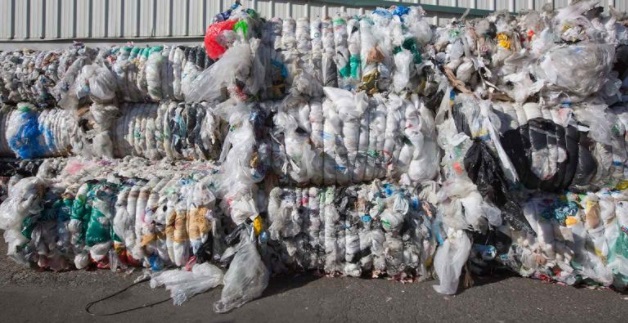 CHANGES to the quality control placed on waste products taken by China and a ban on 24 categories of recyclables and solid waste will have a huge impact on Richmond Valley Council’s recycling efforts.
CHANGES to the quality control placed on waste products taken by China and a ban on 24 categories of recyclables and solid waste will have a huge impact on Richmond Valley Council’s recycling efforts.
In efforts to improve environmental and health conditions, China announced it would no longer accept unsorted, dirty or contaminated plastic, mixed paper and cardboard. The new policy imposes much tighter contamination thresholds on these recyclable streams.
Most Australian material recovery facilities (MRFs) cannot comply with the 0.5 percent threshold.
Council’s General Manager Vaughan Macdonald said the Richmond Valley was lucky in the sense most of its waste was sent to the state-of-the-art Lismore MRF, however, he admitted the changes would not be easy, and the real challenge was finding homes for these products in the short term.
Mr Macdonald said the issue was not unique to NSW. All Australian jurisdictions, and many other countries, had a heavy reliance on the China export market.
He said something simple like a plastic bottle with a lid or label would be rejected under the new restrictions.
He stressed the Richmond Valley area was not affected at this stage and kerbside collections remained as usual.
“While there is no impact to our residents at the moment, we’re continuing to monitor the situation and will work closely with government agencies to understand what, if any, impacts may be experienced moving forward,” Mr Macdonald said.
“Until we see what the full flow-on effects are, we don’t know where recycling lies in the future.
“One thing for sure though is we want residents to continue recycling.”
Council is asking residents to make some small adjustments to household recycling habits to help cope with the change, such as:
· keep your recycling as clean as possible;
· do not put anything into your recycling bin that cannot be recycled. Keep it simple – aluminium, steel, glass, hard plastic, bagged up soft plastic, paper and cardboard;
· do not put anything smaller than a business card size into your recycling bin;
· keep stuff like hoses, pipes and anything which have many different types of materials in it (a plastic toy with bits of steel) out of your recycling bin;
· keep contamination out. The main offenders are dirty nappies, clothing, shoes and anything which can get tangled up such as rope, hose and fairy lights.
Cardboard is still being accepted at the Nammoona Waste and Resource Recovery Facility in Casino and the Evans Head Transfer Station.
Paper can be placed into the mixed recycling skips at Council’s facilities and will still be sent for recycling at the Lismore MRF.
Mr Macdonald said he was confident the community would take on board the new changes to recycling.
He said the community had embraced changes to the three-bin kerbside collections, and continued to do a fantastic job.
He said at the start, 1971 tonnes of organics were collected. Since the introduction of the new collection service in 2016-2017, 3085 tonnes were collected and helped divert 3000 tonnes of food and garden organics from landfill (500 tonnes more than expected). This was an increase of around 2.94 kg per household per week.
“While many people were uncertain when we introduced the changes in 2016, the recycling rates speak for themselves, and I would like to thank residents for their efforts,” Mr Macdonald said.
Related Topics
